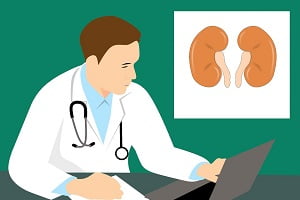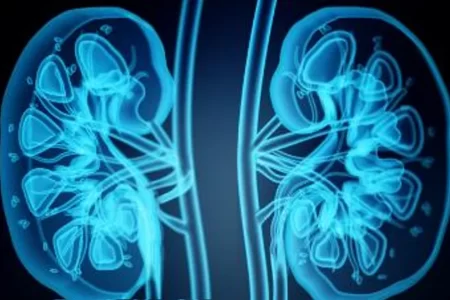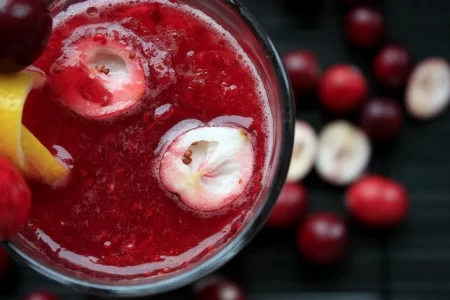How to Prevent Kidney Stones: Kidney Stones Prevention
- Updated on: Jul 1, 2024
- 4 min Read
- Published on Nov 25, 2020

Kidney Stone Prevention
Kidney stones, also known as renal stones or nephrolithiasis, are crystals that form inside your kidneys and are composed of hard, solid waste materials or mineral deposits. When they pass through your urinary tract, they cause excruciating pain. Though most kidney stones form in kidneys, they can develop anywhere in your urinary tract.
Kidney stones are found to affect up to 12 percent of Americans. If you had kidney stones earlier, you’re 50 percent more likely to get another within the next 10 years.
Researchers still are not sure why and how kidney stones form. There is no sure way known to prevent kidney stones, especially if you have a family history of the condition. A combination of making small adjustments to your current diet and nutrition and lifestyle changes with some medication may help you to reduce the risk of developing kidney stones.
Dehydration is thought to be the largest causing factor for kidney stones. However, certain lifestyle habits and foods can increase the risk of developing stones remarkably.
If you suspect you have kidney stones or are at higher risk of developing kidney stones, you should consult a doctor to determine the type of kidney stone and determine which specific foods or activities to avoid.
Read About Natural Ways to Dissolve Kidney Stones
How to Prevent Kidney Stones? What Are the Various Ways to Prevent Kidney Stones?
You can do many things to prevent kidney stones or to minimize the risk of developing kidney stones. Kidney stone prevention strategies may include:
Stay Hydrated
The best way to prevent kidney stones is to drink plenty of water. Drinking less water causes a low urine output means your urine will be more concentrated and is unlikely to dissolve urine salts that cause stones.
To pass two liters of urine daily, you must drink around eight glasses of fluids. If you sweat a lot, do exercise, or have a history of cystine stones, you may need additional fluids. Two good options for you are lemonade and orange juice. They contain citrate, which is also helpful in preventing stone formation.
You can check if you are properly hydrated or not by looking at your urine color. It should be pale yellow or clear but not dark. If it’s dark, you should drink more fluids.
Eat Calcium-Rich Foods
Calcium oxalate stone is the most common type of kidney stone. Due to this, many people believe they should avoid eating calcium-rich foods. However, low-calcium diets may increase your kidney stone risk and your risk of osteoporosis. You should also remember that calcium supplements may increase your risk of kidney stones. You can reduce this risk by taking calcium supplements with a meal.
Consume Less Sodium
A high-salt diet is one of the many factors which increase your risk of developing calcium kidney stones. Salt or sodium can cause water retention in your body, preventing calcium from being reabsorbed from the urine to the blood. By doing so, it causes high urine calcium, which may lead to kidney stones. Lower salt consumption helps keep your urine calcium levels lower, which in turn decreases your risk of developing kidney stones.
Avoid Oxalate Rich Foods
Oxalate is the main constituent of some kidney stones. It is a natural compound found in your foods that can bind with calcium in the urine to form kidney stones. You can prevent the formation of oxalate kidney stones by limiting the consumption of oxalate-rich foods.
Eat Less Animal Protein
Foods having a higher amount of animal protein are acidic and may increase uric acid. High urine is found to cause both uric acid and calcium oxalate kidney stones.
Avoid Vitamin C Supplements
Studies have revealed that vitamin C supplements are associated with a higher risk of developing kidney stones, especially in men. You should avoid taking higher doses of vitamin C supplements.
Increase Your Citric Acid Consumption
Citric acid is an acid found in many vegetables and fruits, particularly citrus fruits. Lemons and limes are a rich source for this compound. It can bind with the calcium present in your urine and reduces the risk of forming calcium oxalate kidney stones. It can also bind with existing stones and prevent their growth in size.
Apart from these, there are other various ways to prevent kidney stones. Kidney stones prevention may include the following points.
- Increase your magnesium intake
- Maintain a healthy body weight
- Reduce alcohol intake
- Avoid excessive caffeine consumption
- Avoid drinks high in sugar
Frequently Asked Questions
How much water should I drink daily to prevent kidney stones?
Aim to drink at least 8-10 glasses of water per day to stay adequately hydrated and help prevent the formation of kidney stones. Adjust your intake based on factors like climate, physical activity level, and medical history.
Can dietary changes alone prevent kidney stones?
While dietary changes can significantly reduce the risk of developing kidney stones, they may not be sufficient for everyone. It's essential to combine dietary modifications with adequate hydration and regular medical follow-ups to prevent recurrence.
Is there a specific type of diet recommended for preventing kidney stones?
A diet low in sodium, oxalates, and animal proteins, while high in calcium-rich foods and fruits and vegetables, is generally recommended for preventing kidney stones. Consult with a healthcare professional for personalized dietary advice.
Are there any supplements that can help prevent kidney stones?
Certain supplements like citrate or magnesium may help prevent the formation of kidney stones by reducing the concentration of stone-forming substances in the urine. However, always consult with a healthcare provider before starting any new supplements.
Can lifestyle changes other than diet and hydration help prevent kidney stones?
Yes, maintaining a healthy weight, avoiding excessive consumption of alcohol and sugary beverages, and quitting smoking can also contribute to kidney stone prevention by promoting overall kidney health and function.












